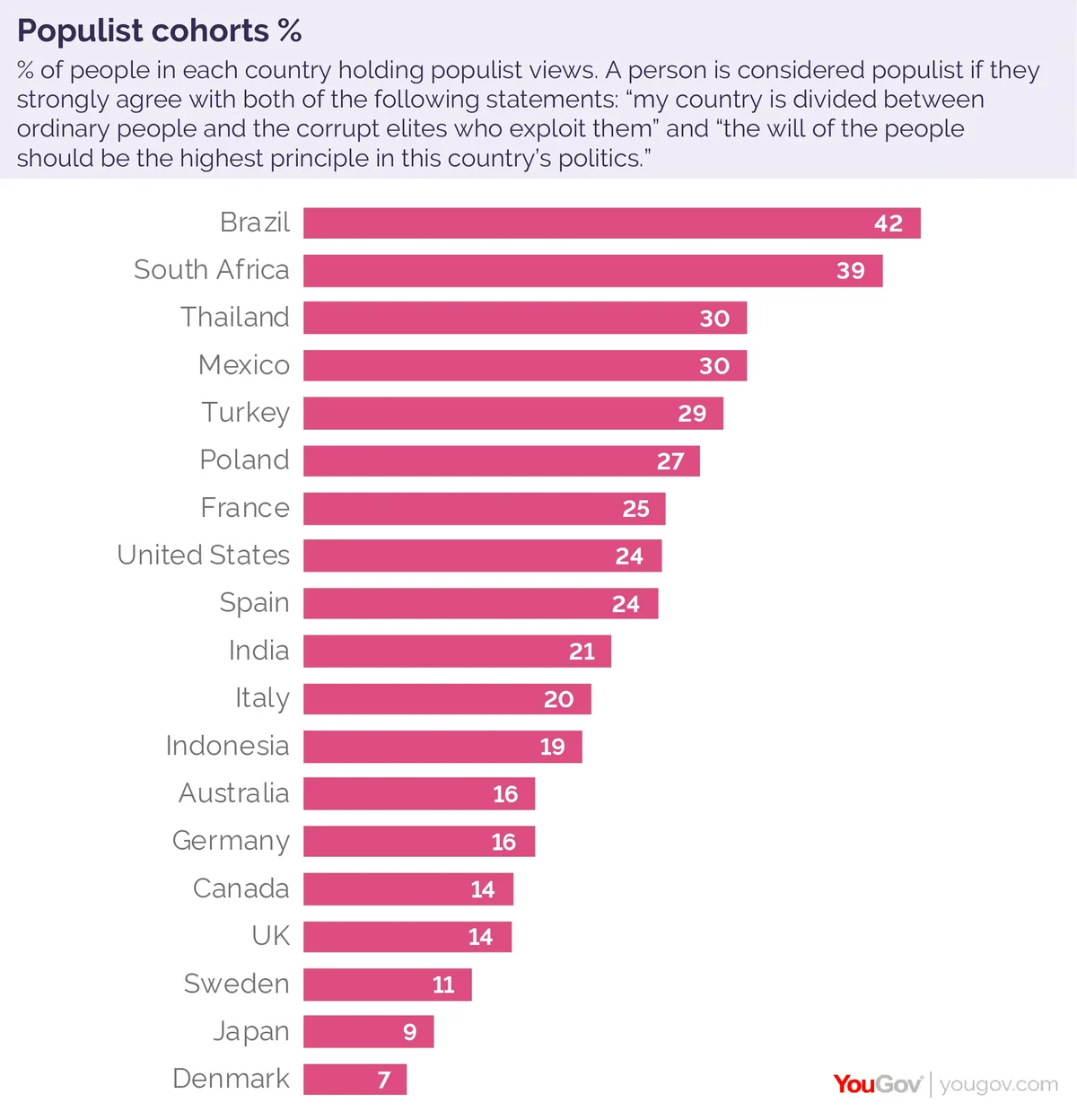The YouGov-Cambridge Centre has partnered with The Guardian and the Bennett Institute for Public Policy at Cambridge University to produce the YouGov-Cambridge Globalism Project: a new, annual study and the largest of its kind on populism and the public state of globalisation, including national samples in twenty-three countries spanning the world.
The project has involved collaboration with numerous academics and practitioners to develop an extensive, multidimensional survey, which can correlate attitudes and behaviour across myriad areas of life: from politics and democracy to food, travel and technology; from soft power and supra-nationalism to consumer habits and the environment.
The homepage of the Globalism Project will be updated constantly as new findings are released.
Methodology
All figures, unless otherwise stated, are from YouGov Plc. Total sample sizes were: France=1021; Germany=1497; Italy=1005; Spain=1014; Sweden=1011; Denmark=1010; Poland=1019; Britain=1949; Australia=1006; United States=2012; Canada=1006; Japan=1143; Brazil=1006; Mexico=1009; Turkey=506; Egypt*=1537; Saudi Arabia*=828; India*=1035; China*=1021; Indonesia*=1001; Thailand*=1043; Nigeria*=644; South Africa=1002. Fieldwork was undertaken between 28th February and 26th March, 2019. The surveys were carried out online. For those markets labelled *, the figures have been weighted and are representative of the online adult population aged 18+. For all other markets, the figures have been weighted and are representative of the adult population aged 18+. For combined country samples, each country has been given an even weighting.
The Guardian-YouGov Populist Cohort
The Dutch political scientist Cas Mudde defines populism as a thin-centered ideology that separates society into two antagonistic groups – “the pure people” versus “the corrupt elite” – and insists politics should be an expression of the general will of the people. Working with academic advisers, the Guardian used this definition, which is the widely-used in political science, to identify a cohort of survey respondents with strong populist views.
The populist cohort in the Globalism Project has been defined by The Guardian based on respondents who answered “strongly agree” to BOTH of the following statements:
“My country is divided between ordinary people and the corrupt elites who exploit them”
“The will of the people should be the highest principle in this country’s politics”
China, Saudi Arabia and Egypt were excluded from some combined country samples as YouGov only conducts certain types of research in these countries. Nigeria was excluded over concerns about outlier results on populist measures. The populist cohort comprised 22% of respondents across the 19 countries that were analysed.

Populist Cohort Analysis
The data was analysed by Guardian journalists in conjunction with YouGov. Additional research exploring the relationship between populist attitudes and conspiracy theories was conducted by Levente Littvay, from Central European University, and Matthijs Rooduijn from the University of Amsterdam.
Models predicting populism and belief in the specific conspiracy theories were fixed effects logistic regressions including controls for country, gender, two polynomials (an expression of more than two algebraic terms) of age (grouped in decades), and urbanicity, measured as city centre or large town, suburb, small town, or settlement.







